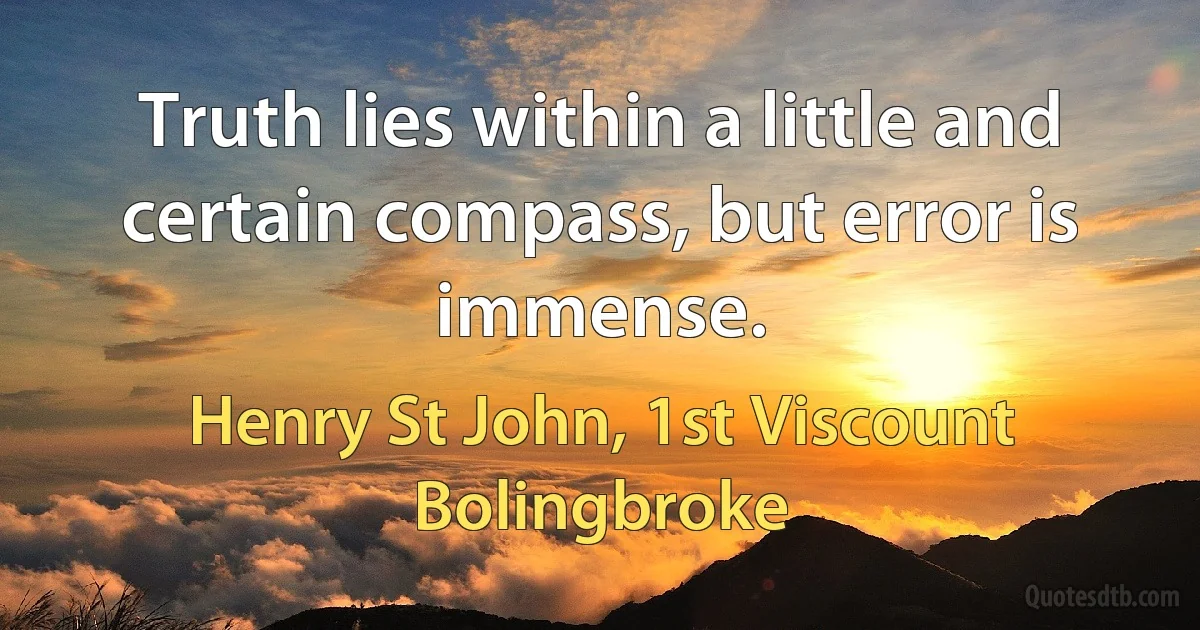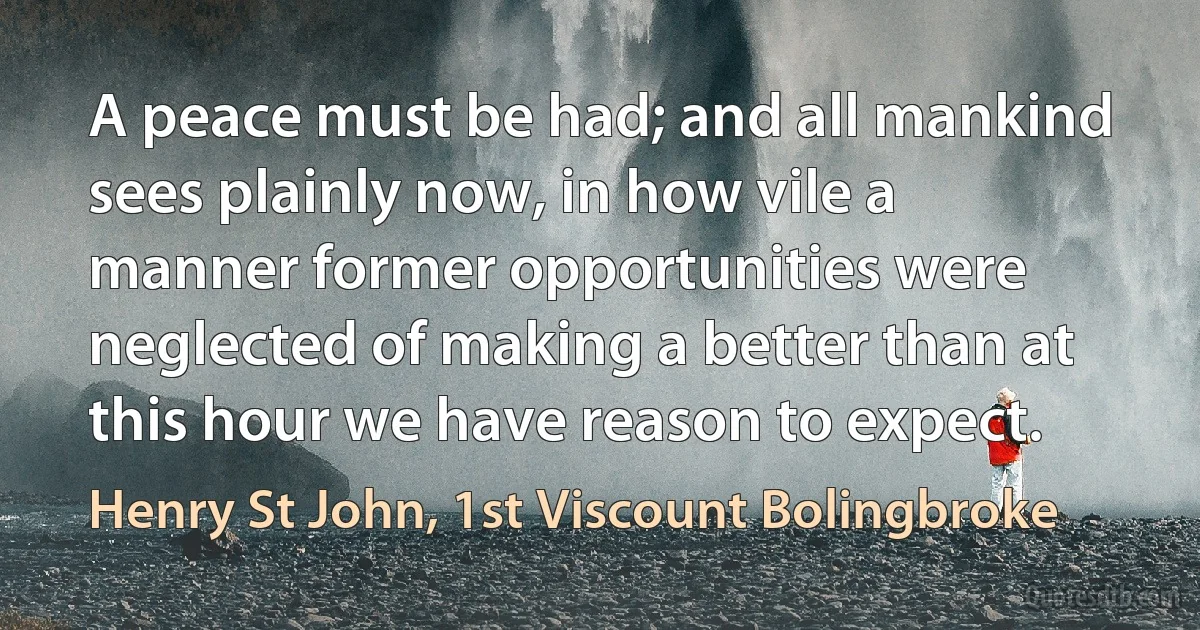Henry St John, 1st Viscount Bolingbroke quotes
You may observe yourself...what a difference there is between the true strength of this nation and the fictitious one of the Whigs. How much time, how many lucky incidents, how many strains of power, how much money must go to create a majority of the latter; on the other hand, take but off the opinion that the Crown is another way inclined, the church interest rises with redoubled force, and by its natural genuine strength.

Henry St John, 1st Viscount Bolingbroke
Another party [the Tories] continued sour, sullen, and inactive, with judgments so weak, and passions so strong, that even experience, and a severe one surely, was lost upon them. They waited, like the Jews, for a Messiah, that may never come; and under whom, if he did come, they would be strangely disappointed in their expectations of glory and triumph, and universal dominion. Whilst they waited, they were marked out like the Jews, a distinct race, hewers of wood and drawers of water, scarce members of the community, tho born in the country.

Henry St John, 1st Viscount Bolingbroke
Neither Montaigne in writing his essays, nor DesCartes in building new worlds, nor Burnet in framing an antedeluvian earth, no nor Newton in discovering and establishing the true laws of nature on experiment and a sublimer geometry, felt more intellectual joys; than he feels who is a real patriot, who bends all the force of his understanding, and directs all his thoughts and actions, to the good of his country.

Henry St John, 1st Viscount Bolingbroke
There have been periods when our government continued free, with strong appearances of becoming absolute. Let it be your glory, my Lord, and that of the new generation springing up with you, that this government do not become absolute at any future period, with the appearances of being free.

Henry St John, 1st Viscount Bolingbroke
It follows, therefore, that he who breaks the laws of his country resists the ordinance of God, that is, the law of his nature. God has instituted neither monarchy, nor aristocracy, nor democracy, nor mixed government: but tho God has instituted no particular form of government among men, yet by the general laws of his kingdom, he exacts our obedience to the laws of those communities to which each of us is attached by birth, or to which we may be attached by a subsequent and lawful engagement.

Henry St John, 1st Viscount Bolingbroke
By the principles of the Revolution, a subject may resist, no doubt, the prince who endeavours to ruin and enslave his people, and may push this resistance to the dethronement and exclusion of him and his race: but will it follow, that, because we may justly take arms against a prince whose right to govern we once acknowledged, and who by subsequent acts has forfeited that right, we may swear to a right we do not acknowledge, and resist a prince whose conduct has not forfeited the right we swore to, nor given any just dispensation from our oaths?

Henry St John, 1st Viscount Bolingbroke
It seems to me, upon the whole matter, that to save or redeem a nation under such circumstances from perdition, nothing less is necessary than some great, some extraordinary conjuncture of ill fortune, or of good, which may purge, yet so as by fire. Distress from abroad, bankruptcy at home, and other circumstances of like nature and tendency, may beget universal confusion. Out of confusion order may arise: but it may be the order of a wicked tyranny, instead of the order of a just monarchy. Either may happen: and such an alternative, at the disposition of fortune, is sufficient to make a stoic tremble! We may be saved indeed by means of a very different kind; but these means will not offer themselves, this way of salvation will not be opened to us, without the concurrence, and the influence of a P.

Henry St John, 1st Viscount Bolingbroke
Among many reasons which determine me to prefer monarchy to every form of government, this is a principal one. When monarchy is the essential form, it may be more easily and more usefully tempered with aristocracy or democracy, or both, than either of them, when they are the essential forms, can be tempered with monarchy. It seems to me, that the introduction of a real permanent monarchical power, or any thing more than the pageantry of it, into either of these, must destroy them and extinguish them, as a great light extinguishes a less. Where it may easily be shewn, and the true form of our government will demonstrate, without seeking any other example, that very considerable aristocratical and democratical powers may be grafted on a monarchical stock, without diminishing the lustre, or restraining the power and authority of the prince, enough to alter in any degree the essential form.

Henry St John, 1st Viscount Bolingbroke



